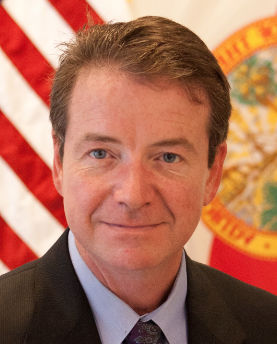Rate Decrease Would Mean Lawmakers Have No Stomach for Reforms
Monday, October 9, 2017 | 0
The enthusiasm of the business community and lawmakers to pass workers’ compensation reforms, particularly limiting claimants’ attorney fees, has waned in the wake of a proposed overall 9.3% rate decrease, stakeholders said.

Bill Herrle
“We still believe the rates are going to go up, but when rates are going down, we don't have wind in our sails,” Bill Herrle, executive director of the National Federation of Independent Business in Florida, told the News Service of Florida.
The National Council on Compensation Insurance on Aug. 28 recommended the 9.3% overall rate decrease for Florida employers because of favorable experience in policy years 2014 and 2015.
NCCI stressed, however, that the proposed decrease is based on data that precedes the Florida Supreme Court decisions in Castellanos and Westphal from the spring of 2016.
In anticipation of higher costs, regulators last year approved a 14.5% rate hike after NCCI projected at least $1 billion in unfunded liabilities due to the retrospective nature of the court decisions.
The high court ruled in April 2016 in Marvin Castellanos v. Next Door Co. that Florida’s statutory attorney fee schedule was unconstitutional because it did not allow for reasonable fees in some cases.
A June 2016 Supreme Court ruling in Bradley Westphal v. City of St. Petersburg declared a 104-week cap on temporary benefits unconstitutional and raised it to the ceiling of 260 weeks that was in place before reforms passed in 2003.
Insurance Commissioner David Altmaier will consider the latest NCCI rate filing later this month.
House Commerce Committee Chairman Jim Boyd, R-Bradenton, told the news service that he remains concerned about attorney involvement in the system and has asked regulators to update his committee next week.
Boyd, an insurance agent, conceded that legislative action would not be needed if Altmaier approves lower rates for next year as expected.
“I’m not sure doing anything (when the Legislature reconvenes in January) would be appropriate or prudent,” Boyd told the News Service of Florida.



Comments